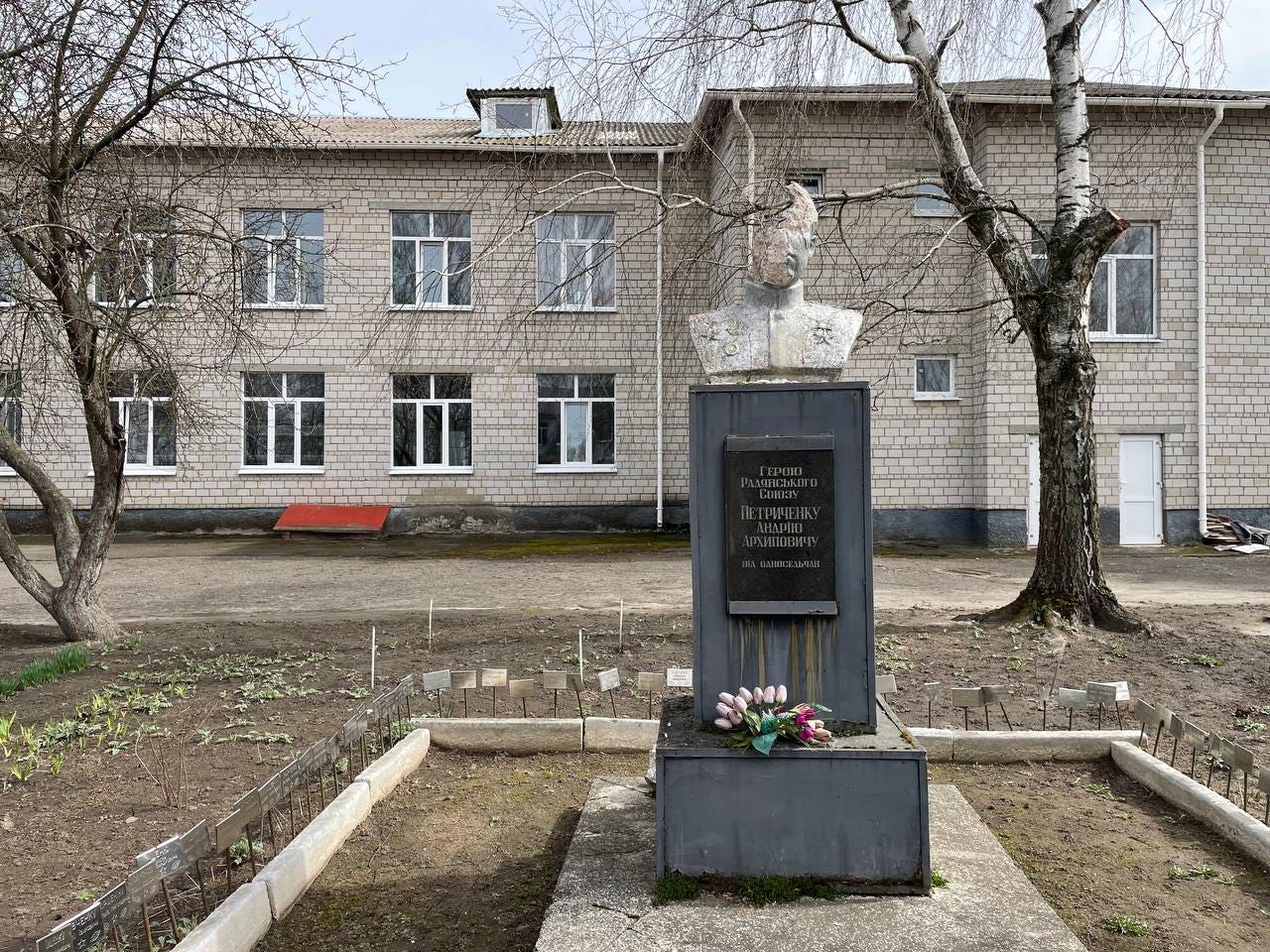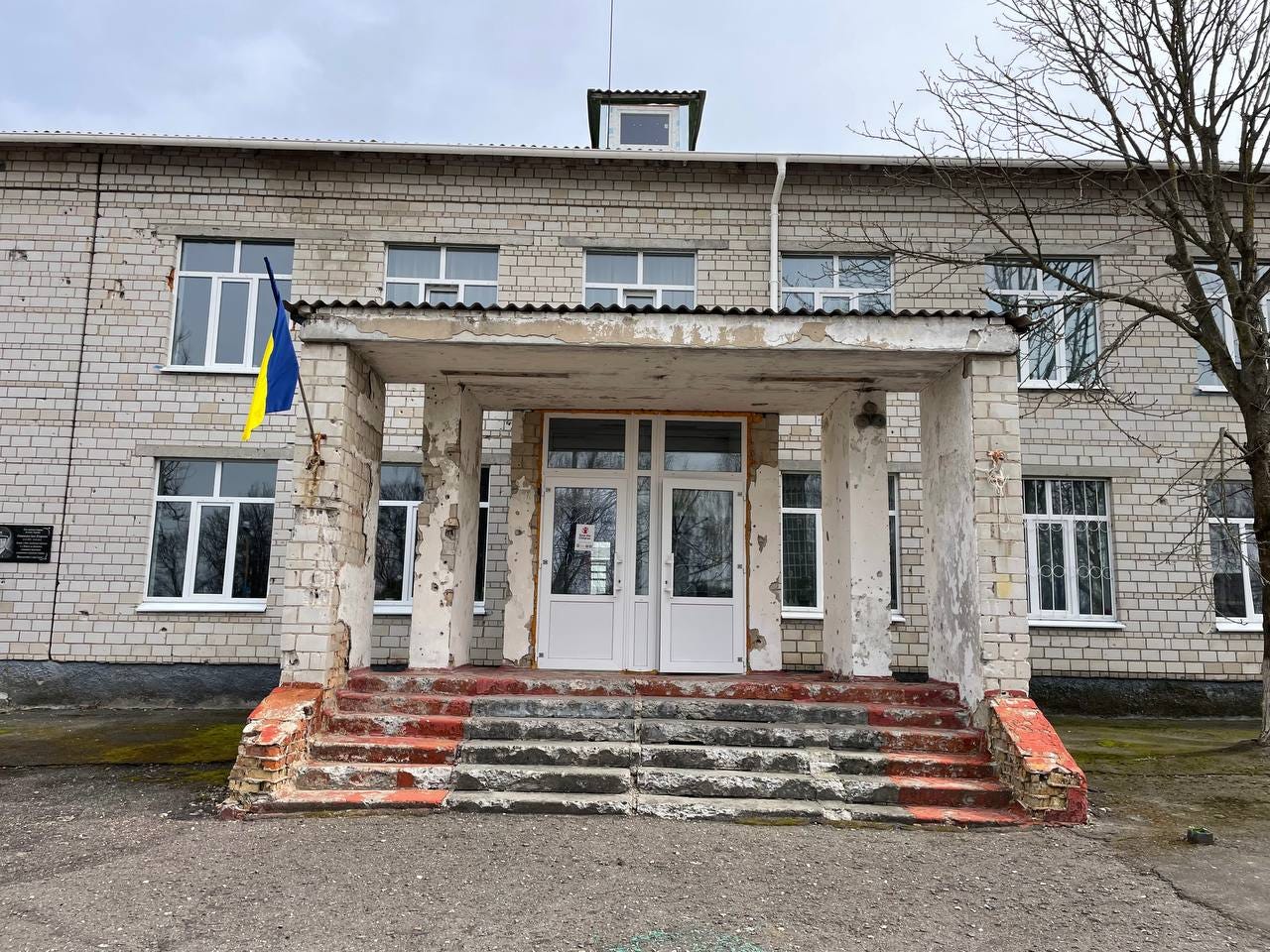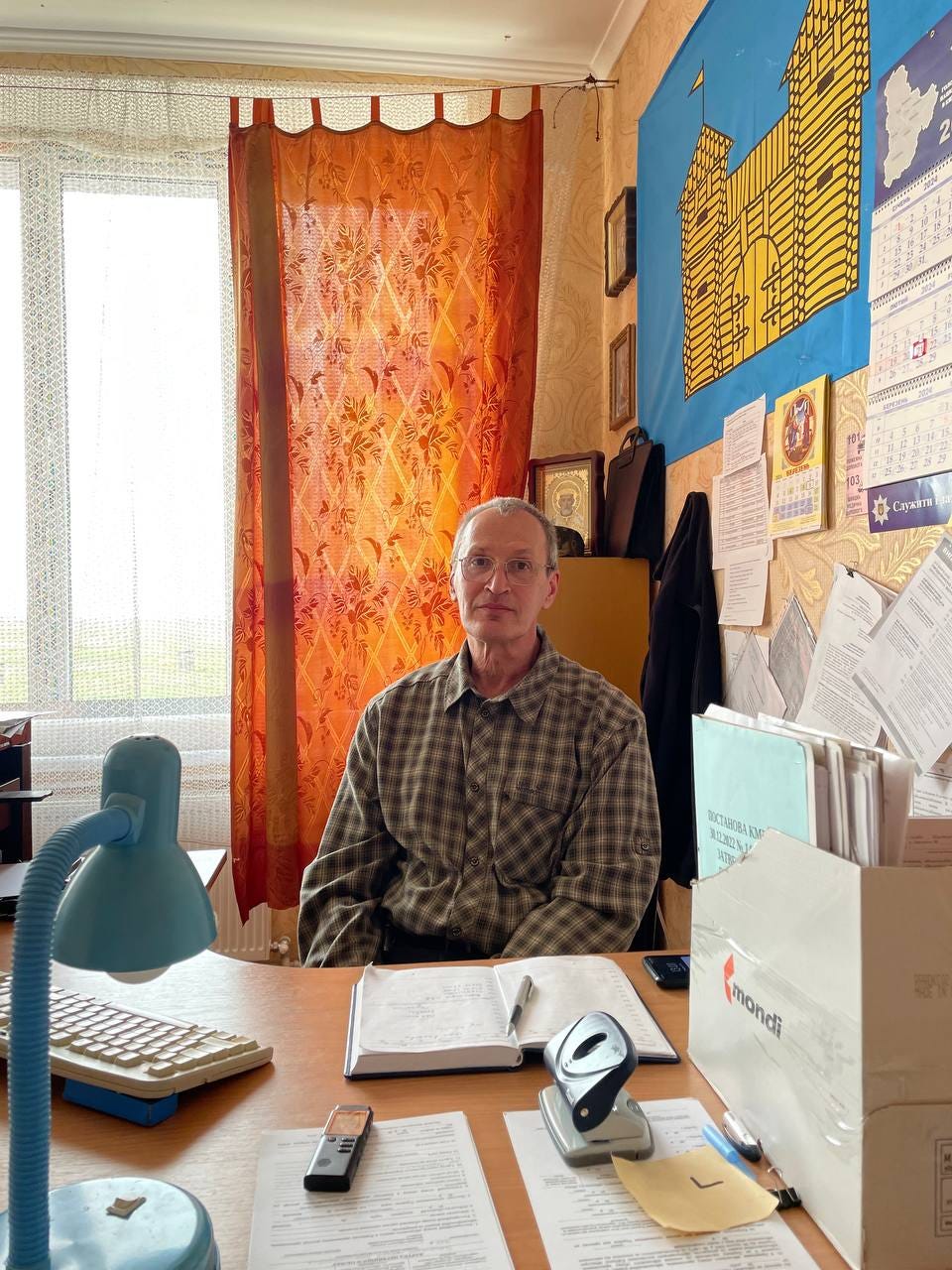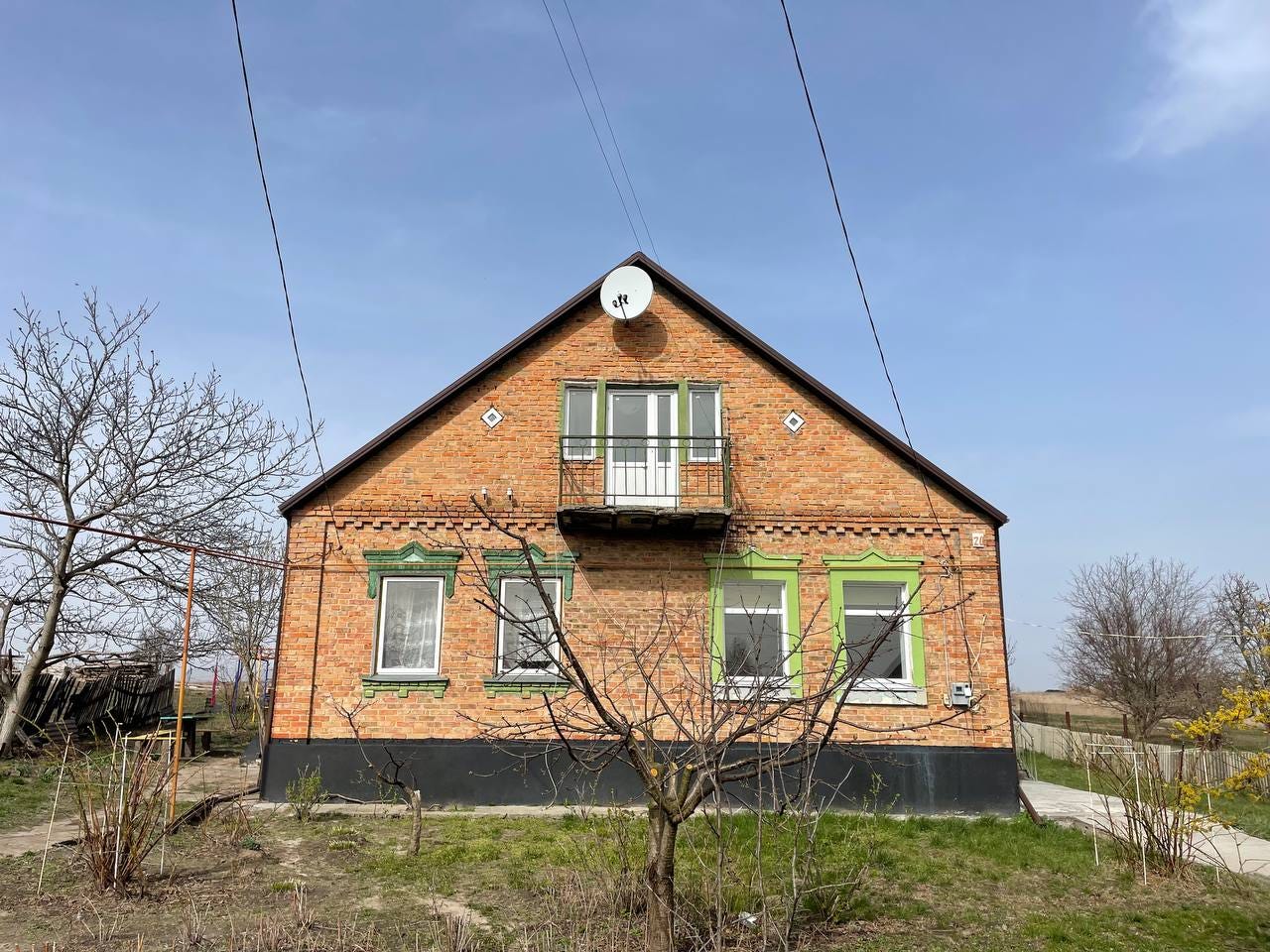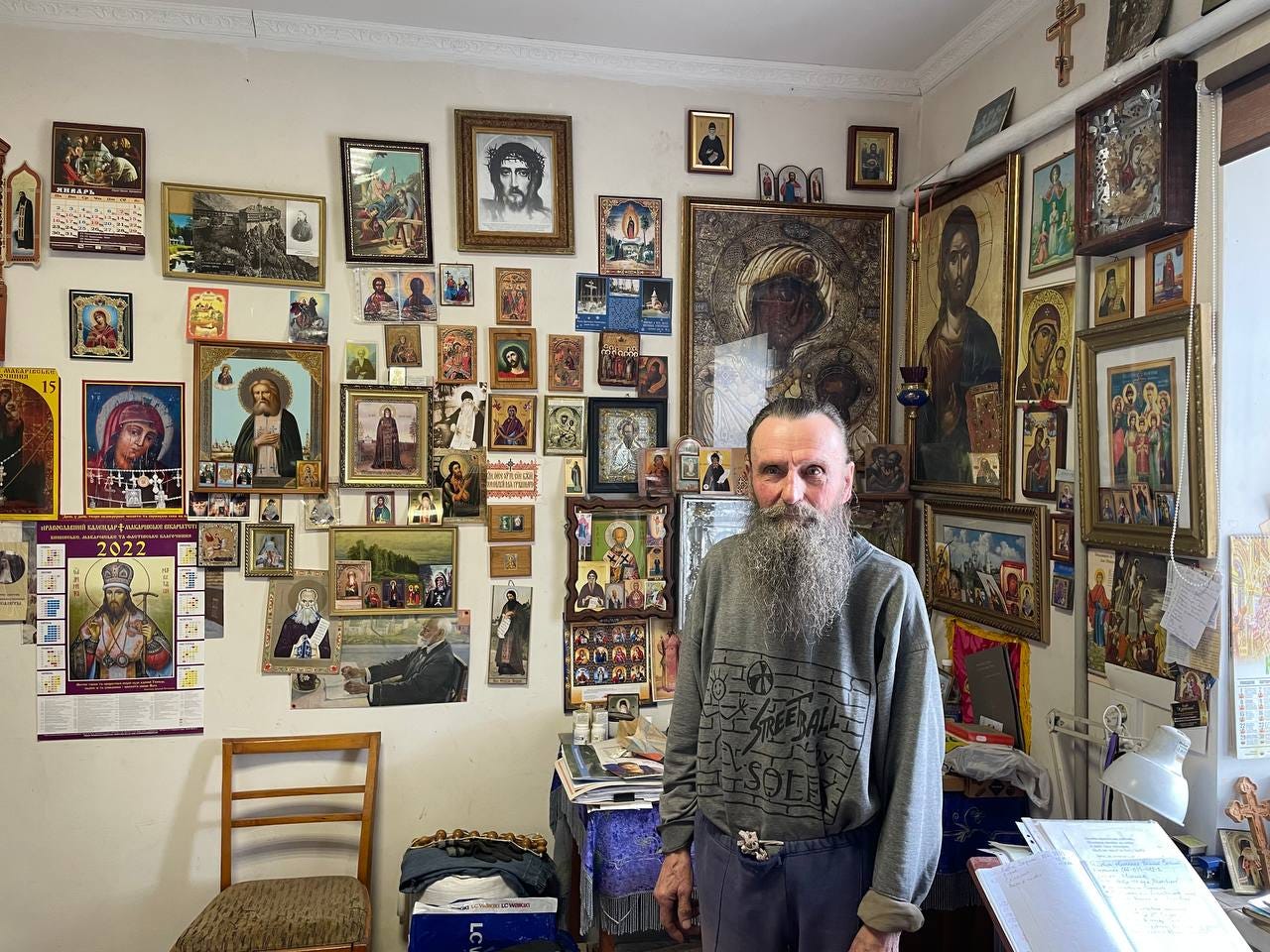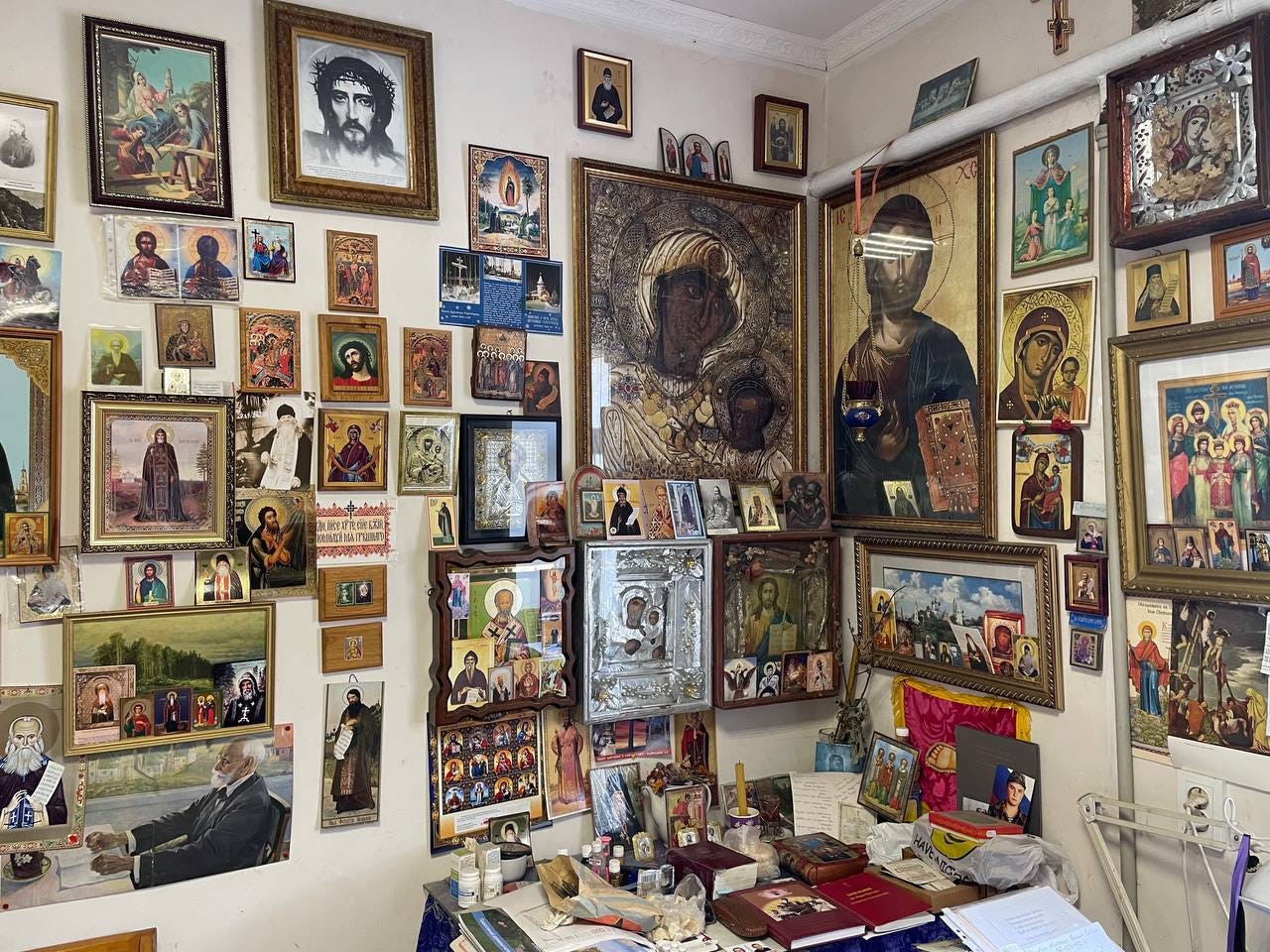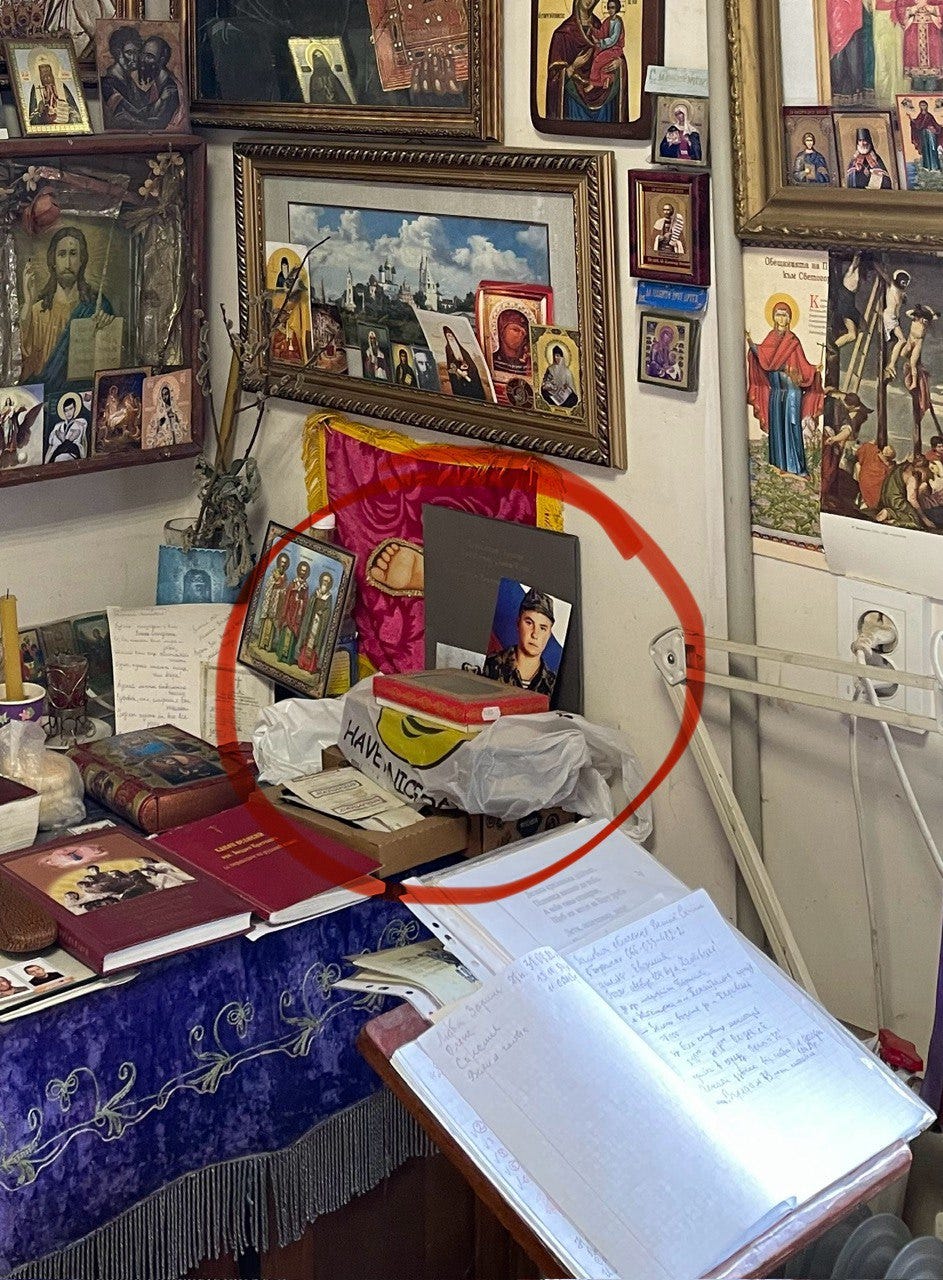The alleged Russian collaborator next door
An accused traitor, awaiting the end of his trial, is living among the people he is alleged to have betrayed, like nothing ever happened. We tracked him down in the small village of Andriivka.
Editor’s Note: We are holding in-person events in Chicago, New York City, Toronto and D.C. to mark our one year anniversary. Come by to ask questions and meet me!
Our next event is in Washington, D.C. – April 13th at 7pm. Please RSVP here.
All paid subscribers are invited! For a limited time, we’re offering a 20% discount so you can sign up and attend!
"If I had a gun, I would shoot him myself,” said a woman known as Grandma Sofia.
Already over 80 years of age, she's the sort of person in a small village who knows everything about everybody.
She’s the talkative type, the kind that trades the local gossip. She makes friends easily.
But not with Mykola.
“No one in the village likes him, everyone is afraid of him," Sofia said.
For years, she’s been the next-door neighbor of a man named Mykola Yevtushenko, a thin, dirty-looking man with a gray beard and glasses on his nose.
We were on the hunt for Mykola to understand how he lives nowadays. The story of this alleged traitor, whose trial for cooperation with the Russians during the occupation will likely finish this week, is a complex case study in how Ukrainians have reacted to those who supported occupying forces.
Two years after the area’s liberation, the accused collaborator is still freely living among them – raising questions of what is a just punishment for his actions, and whether Ukraine should focus on rooting out the Russia-sympathetic people among them.
In 2022, when the Russians occupied the village, Mykola allegedly gave the occupiers shelter and fed them. He is accused of showing them where the houses of the wealthy villagers were, which the occupiers later robbed. He is said to have blessed them and their military equipment.
At the time, Sofia stayed at home. Russian troops forbade people from going out into the streets.
She said that on the first day, when the Russian columns marched through the village, she was outside. What she saw stunned her: Mykola walking in clerical robes, walking towards the military vehicles.
He stopped in front of the column, he said, and began to bless the Russian troops and vehicles.
A few days later, Russians began to visit Mykola. They visited him often, several people at a time, and could stay in his house for days. In addition, he himself rode with the Russians in the cars they had taken from the residents of Andriivka.
And one day, Grandma Sofia saw more collaboration.
"He came out into the yard, an icon under his arm, a cross in his other hand, and a vehicle picked him up and took him to the end of the street. He went there to christen a Russian man," Sofia said with disgust.
Andriivka is located northwest of Kyiv, and it took us about an hour to get there by car. Andriivka is a common village name in Ukraine, and at first glance, it looks like any other. There is a main road, a school, a village council, a shop and a church.
But when the war erupted, this village faced dire circumstances. Situated along the route from the Belarusian border to Kyiv, Russian forces entered on February 27th, 2022.
With no Ukrainian soldiers nearby, and only 75 volunteers in the local territorial defense armed with hunting rifles, there was no resistance as a massive convoy of Russian military vehicles rolled through the main street.
Before the full-scale invasion, just over a thousand people lived here. Many left during the occupation, and now the village is home to about 800 people.
As we drive through the village, we see many destroyed houses and even burnt cars. In the Kyiv region, Andriivka was one of the villages that suffered the most at the hands of the Russians. During the occupation, 65 houses were completely destroyed and another 400 were badly damaged.
The Russians shelled houses and arrested people suspected of collaborating with the Ukrainian military. People were kidnapped and tortured. 13 men were shot.
Vitalii Cherkasov, the current village leader, could easily have been one of them.
He enlisted in the territorial defense when the full-scale invasion began. When the Russian forces occupied the village, Cherkasov became a wanted man.
The occupiers seized his residence, and his wife, daughter, brother, and mother-in-law were held hostage, with threats of harm unless they disclosed Vitalii's whereabouts and those of the Territorial Defense.
Despite a shell striking Cherkasov's kitchen, causing part of it to burn down, his family miraculously survived and eventually managed to flee the war by seeking refuge abroad.
On March 31, 2022, Andriivka was liberated. Vitalii returned to the village and found a desperate situation.
"The people here were terribly hungry. The Russians came here with nothing because they thought they would capture Kyiv in a few days, but it didn't work out that way. So they ate the whole village," Vitalii Cherkasov said.
Mykola Yevtushenko, who called himself a monk, was among those who came to receive humanitarian aid after the Russians left. But the locals turned against him, accusing him, like Sofia did, of collaborating with the Russians during occupation.
Then officers from Ukraine’s security services came to visit him. They talked to him for more than an hour, a meeting Vitalii Cherkasov was also present at. The ‘monk’ denied everything. A week later, the SBU returned, and fellow villagers testified against Yevtushenko.
The ‘monk’ is a well-known figure in the village, even before the full-scale invasion. However, people did not see him in a very good light even then.
Mykola Yevtushenko comes from the Chernihiv region. He came to Andriivka in Soviet times and worked here as a chemistry teacher. He was not religious at all.
And then he married a girl. They had two children. After a while, they moved to Kyiv. Yevtushenko went to work in a Kyiv boarding school for children with hearing impairments, then in another boarding school for children with mental disorders. And then, according to the Ukrainian prosecutor general’s office, he was convicted of child molestation.
He served four years in a penal colony, Cherkasov said.
When Mykola Yevtushenko resurfaced, several years later, he told people that he had joined the Russian Orthodox Church and converted to Christianity.
The local church does not consider him a real priest. The director of the school where the ‘monk’ used to teach in Andriivka, Leonid Khomenko, said that Yevtushenko always expressed pro-Russian ideas, calling Russia a ‘brotherly people.’
"He had this idea from his youth that Russia is our best friend, our big brother," Khomenko said.
The ‘monk’ now lives in the village. He spent almost eight months in pre-trial detention, but was then released. He cannot leave Ukraine and has to appear at every court hearing.
Meanwhile, he lives a normal life in the village he allegedly betrayed to the Russians.
He plants a garden, sometimes leaves the yard, but not often.
Both the village head Vitalii Cherkasov and grandmother Sofia told us that humanitarian aid is delivered to him personally almost every week.
And it is done by... representatives of the Russian Orthodox Church – the same one with historical links to Moscow, and that the Ukrainian legislature is considering banning.
"By the looks of all the people who bring him food and things, they are monks from the Moscow Patriarchate, from a monastery not far from here," Vitalii Cherkasov said.
Although people in the village say that the ‘monk’ is quite private and does not communicate with anyone, he is fighting for the Russian Church.
We did not have high hopes for being able to talk to this ‘monk.’
He has never given an interview with the press, and he’s currently in the midst of criminal proceedings.
But when we arrived outside his gates in Andriivka, we saw a disheveled man wearing trousers and a sweatshirt, working outside.
Unexpectedly, he agreed to talk. There is some concern about how a man who molested children and betrayed his neighbors and relatives to the Russians will behave.
But Yevtushenko behaves as if nothing has happened and he is innocent.
Mykola Yevtushenko invites us into his courtyard. He speaks quietly, sometimes smiling, and asks us to call him ‘monk.’
He says he is going through the process of officially becoming a monk.
He denies all accusations against him. And he tries to convince us that it's all slander from a neighbor who doesn't like him.
But his voice is fake, insincere – with signs of lying involved.
We ask him directly if he supports the Russians. He does not answer this clear question.
"We are all Slavs. We say it wrong: Ukrainians are not Ukrainians. We are small Russians, there are also Belarusians and big Russians. So how should I treat our neighbors? I should love them all, but I hate their actions," he said.
When we ask him how he feels about the actions of the Russians, he answers ambiguously.
"This is the spiritual side. And my secret," he said slyly.
Mykola invited us to his "chapel." That is what he calls the room where he prays. Two of its walls are completely covered with religious icons.
And there we see an interesting photo: a man in military uniform in front of a Russian flag. The ‘monk’ explains that this is a Russian whose head was cut off by Chechens in 1996.
He tells us that he feels very sorry for this man.
When we point out that the Russians do the same thing to Ukrainian POWs, he replies that we do not know the whole truth.
It seems obvious to me: he is a supporter of Russia, but he is trying to hide it.
The law on collaborators was adopted in March 2022. In two years, more than 230 people have been convicted. Most of the cases involved people who spread Russian propaganda on social media or convinced others to support the occupation.
Proving collaboration in court poses significant challenges. Those who openly collaborate with occupiers often flee alongside them. Others, leaving behind minimal evidence for future investigations, hope to evade scrutiny.
Similarly, there is limited evidence against the ‘monk,’ save for testimonies from neighbors. The Russians confiscated people's phones, erasing potential evidence such as photos of the ‘monk’ christening equipment or traveling in vehicles with occupiers.
Yevtushenko potentially faces up to 12 years in prison, and the confiscation of his property. However, given his age of 76 years old, the court might opt for a suspended sentence.
His final trial dates are expected to be today through Tuesday.
After the paywall: More evidence of China’s cooperation with Russia – in order to boost Putin’s war effort – is emerging. And, in reporter’s notebook, Myroslava describes how she put together her first ever field reporting trip to Andriivka – and how she overcame her fears of the work.
Keep reading with a 7-day free trial
Subscribe to The Counteroffensive with Tim Mak to keep reading this post and get 7 days of free access to the full post archives.




